Getting an abortion while trans was always hard. In Texas, a new law puts outsized burdens on them
The summer before Emmett Schelling's senior year of high school, he was sexually assaulted. Schelling, who was 17 years old, found out in November of his senior year he was pregnant, around the time he was going to sign a letter of intent for college.
Schelling, executive director of the Transgender Education Network of Texas, is a parent as a result. Though he did not seek an abortion, the decision to become a parent was deeply personal, especially as a trans man in Texas, Schelling told USA TODAY.
Schelling's story highlights how the battle over abortion rights in the Lone Star State often excludes the experiences of trans men and nonbinary people – communities that face extra burdens when it comes to reproductive care.
A Texas law banning abortions after the six-week mark – before many people know they are pregnant – without any exemptions for rape or incest, mobilized abortion rights supporters at the end of August and early September, who decried the law's effects on women.
Advocates said the exclusion of trans men and nonbinary people from news coverage on abortion obscured how much the law hurts those groups.
“I think what we're seeing with the impact of this law is that it's hurting the most vulnerable people. And so certainly trans and nonbinary people fall into that category,” said Amna Dermish, regional medical director at Planned Parenthood of Greater Texas.
For Schelling, the law has a personal dimension.
"This happened to me in my life,” Schelling said. “The ability to make that decision, because it's a lifelong commitment to be a parent. You are essentially forcing someone to live a life that they have not planned and they had not anticipated or expected and, in some cases, did not want.”
More: Supreme Court declines to block Texas abortion law that bans procedure at six weeks
After the Supreme Court declined to temporarily block enforcement of the Texas law, President Joe Biden called the ruling “an unprecedented assault on a woman’s constitutional rights under Roe v. Wade.” News coverage of the law tended to focus on the ways it affected cisgender women – women whose gender matches the sex they are assigned at birth – without any mention of trans men or nonbinary people.
The fate of Senate Bill 8 is unclear. U.S. District Judge Robert Pitman of Austin blocked enforcement of the law Wednesday, calling it an "offensive deprivation of such an important right." The U.S. 5th Circuit Court of Appeals temporarily reinstated it, prompting the Department of Justice to ask a federal appeals court to stop the law again.
“It shouldn't be something that is legislated by the government in terms of how people need to make decisions for their own lives and what kind of medical care that they need to receive to be the best selves that they can be,” Schelling said.
More: Federal judge blocks Texas restrictive abortion law, says women faced 'irreparable harm'
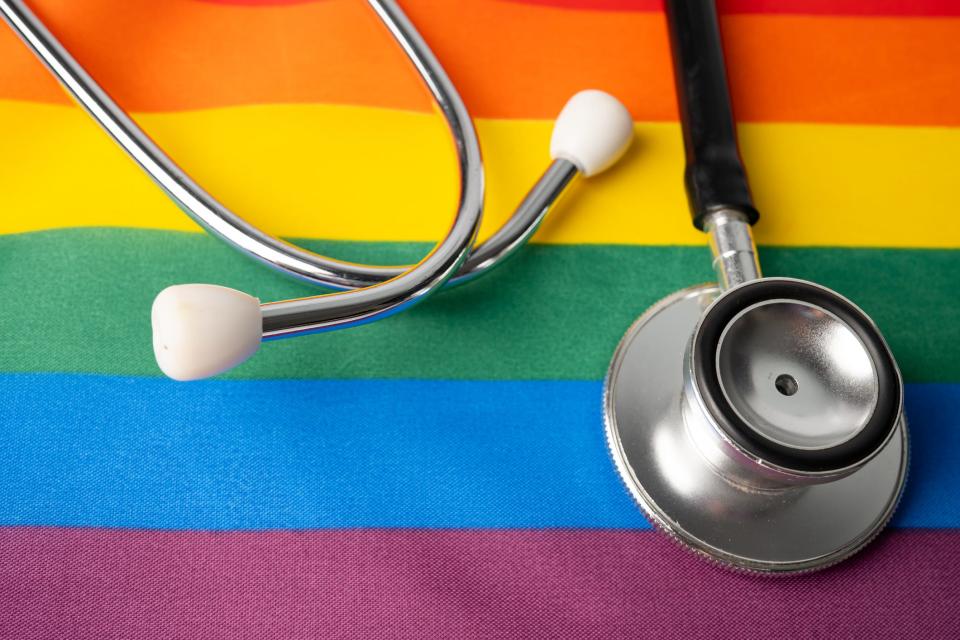
Systemic barriers, deadnaming and shame
Even before SB 8 was enacted, trans men and nonbinary people faced systemic barriers to reproductive health care. A report published in 2016 by the National Institutes of Health said the biggest barrier to medical care for transgender patients is the lack of access.
Nonbinary and transgender people can face being misgendered or deadnamed, uncomfortable conversations about reproductive organs, harsh or even cruel treatment in medical offices.
“There are barriers in how we train nurses and doctors to care for competently and affirmingly for trans patients,” said Chris Barcelos, an assistant professor in women’s, gender and sexuality studies at the University of Massachusetts Boston. “There are barriers in the way that the front desk staff are trained or are not trained in talking to trans people with appropriate and affirming language.
“It ranges from everything from incompetence to lots of documented violence on the part of health care providers.”
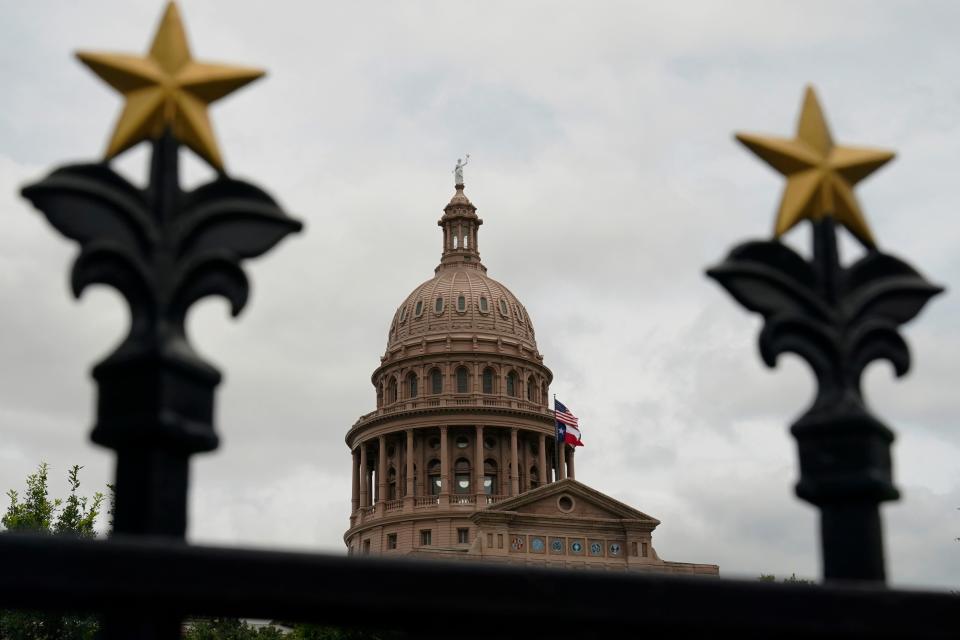
It's not just transphobia
Socioeconomic status, race, housing and immigration status intersect with the transgender identity, which can lead to more difficulty in receiving adequate health care.
“In the same ways that you see a lack of cultural competence, in the same ways you see discrimination pop up in other health care spaces, that can also appear in abortion care spaces,” said Avatara Smith-Carrington, a staff attorney for Lambda Legal in Texas who is a trans nonbinary person, someone whose gender identity is not exclusively male or female and doesn't identify with the sex assigned at birth.
Smith-Carrington said it can be difficult for trans men to get access to insurance, much less competent health care.
Smith-Carrington noted that people in urban areas such as Dallas, Houston and Austin are more likely to have better access to providers than those who live in rural areas or near the border.
“The barriers that folks face in Texas with regard to health care generally are already high,” Smith-Carrington said. “Because you're not only looking for providers who know how to provide you with competent, culturally sound care, but that can sometimes mean that those providers are far and few apart.”
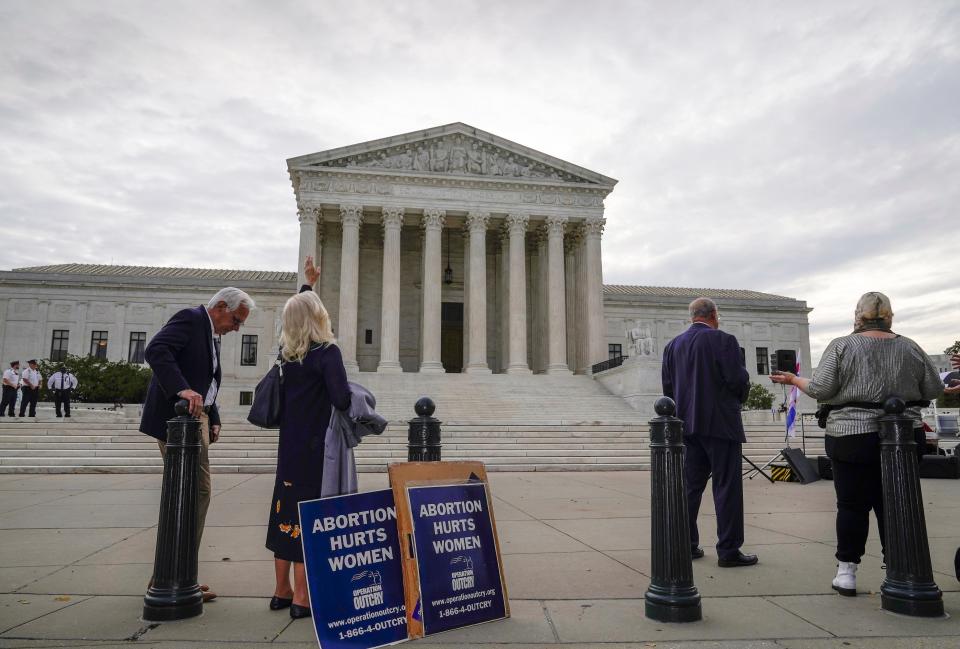
Higher rates of poverty among trans people
Access to affordable child care and paid time off can be precarious for trans men and nonbinary people, in part because of their higher poverty rates compared with the general population.
A report in 2019 by UCLA’s Williams Institute on Sexual Orientation and Gender Identity Law and Public Policy found: “Among LGBT people, transgender people have especially high rates of poverty – 29.4%.”
In 2015, a National Center on Transgender Equality report found nearly 29% of participants lived in poverty compared with 12% of the U.S. population, and 15% of participants were unemployed – a rate three times higher than the unemployment rate in the U.S. population.
For trans and nonbinary people, that higher rate of poverty makes it even harder if they need to find the time and resources to leave the state for care.
“One of the problems with laws such as what happened in Texas is that it causes someone trying to get an abortion to have to travel longer distances with more out-of- pocket expenses and delays when the procedure happens, which makes it more expensive and potentially more risky,” Barcelos said.
If a trans or nonbinary person’s driver’s license doesn’t match that person's appearance or chosen name, traveling by plane can be complicated or even impossible. It’s an unknown factor that can be overwhelming, advocates said.
These added costs and complexities may explain why trans people are more likely to prefer at-home abortion services, researchers found.
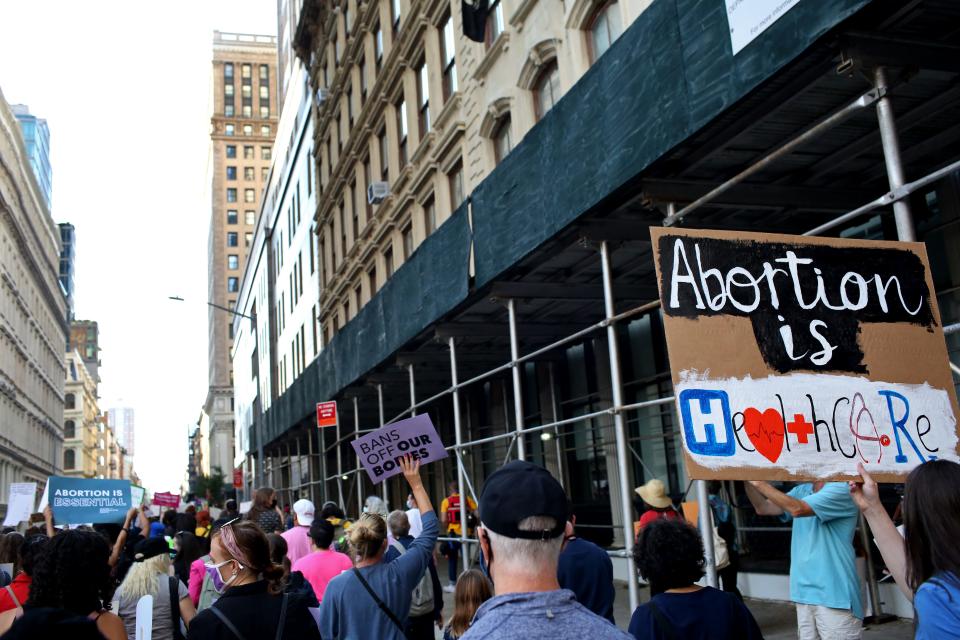
Privacy and at-home abortions
A report in April in the American Journal of Obstetrics and Gynecology on transgender, nonbinary and gender-expansive people in the USA found that those patients preferred medication abortion over surgical abortion by a 3:1 ratio.
Heidi Moseson, the lead researcher on the report, told USA TODAY the use of the pill mifepristone followed by misoprostol to end a pregnancy is preferred by trans men and nonbinary people because it allows for more privacy.
"People like the idea of: I could just take these pills. I can do this myself. I can be at home. No one's watching me. No one's asking me questions," Moseson said.
It allows people to end their pregnancies "without stigma or judgment or legal bans or all the costs of getting to a clinic," Moseson said.
Transgender people and bisexual women have alarming rates of sexual assault, according to the Human Rights Campaign. A U.S. Transgender Survey in 2015 found nearly half of transgender people, 47%, are sexually assaulted.
Moseson and the other researchers offered one piece of advice on what health care providers could do to be more inclusive.
“To improve accessibility and quality of abortion care for transgender, nonbinary and gender-expansive patients, respondents most frequently recommended that abortion clinics adopt gender-neutral or gender-affirming intake forms, that providers use gender-neutral language and that greater privacy be incorporated into the clinic,” they wrote.
Another research report this year that Moseson led found some pregnant transgender and nonbinary participants attempted an abortion without clinical supervision.
"A very high proportion of the trans and nonbinary people who had been pregnant reported attempting to end the pregnancy on their own," Moseson said. "Not going to a clinic. Not having help from a doctor or nurse. Orders of magnitude higher than we see on cisgender women."
Though self-managed abortion with mifepristone and misoprostol is safe, the methods reported by transgender and nonbinary participants were "concerning," Moseson said.
"Participants were trying other methods, some of which are definitely not safe, like overdosing on substances or inserting things into the uterus or vagina," she said.
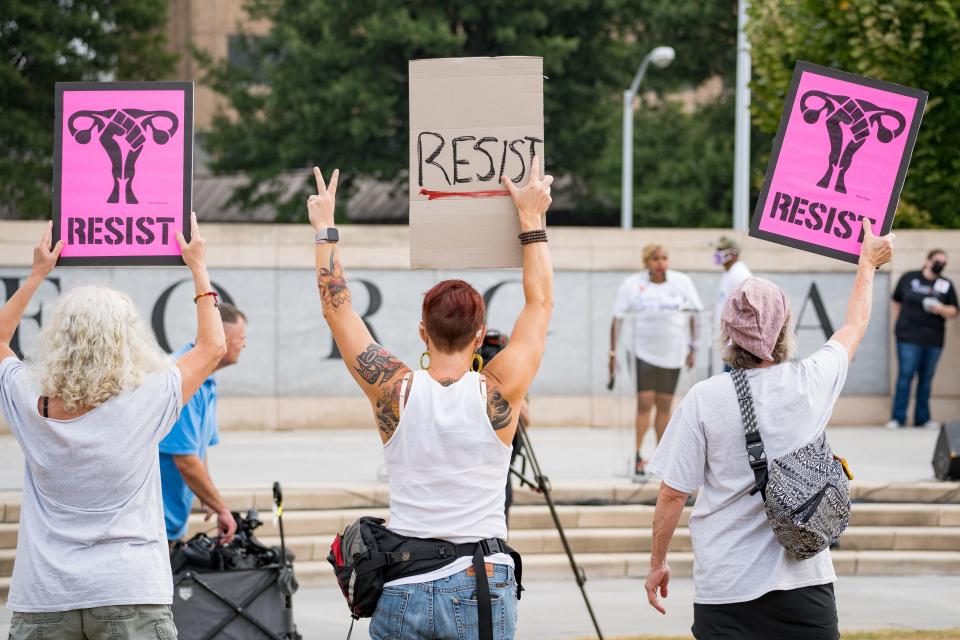
Leaving Texas to get an abortion
In the wake of the federal judge striking down SB 8, the presidents of Planned Parenthood South Texas, Gulf Coast and Greater Texas issued a cautious statement urging people to call health centers to discuss their abortion options.
“This legal victory is an important first step toward restoring abortion access in Texas, but the fight is not over," wrote Jeffrey Hons, Melaney Linton and Ken Lambrecht. "The state has already appealed this ruling and we don’t know if or when this injunction could be lifted, and the law could be back in effect.
"We are regularly assessing what’s possible during this period of uncertainty but, given the state's appeal, our health centers may not have the days or even weeks it could take to navigate new patients through Texas’s onerous abortion restrictions."
Planned Parenthood's Dermish said some of her patients have the resources to travel, but many don't.
“They're going wherever they can have support or whatever is going to be the least complicated,” Dermish said.
Louisiana and Oklahoma have two of the closest health centers to Texas but are six to seven hours away. Both states have waiting periods before getting an abortion.
“People with means will always have access,” Dermish said. “The people who don't have reliable transportation, who don't have someone to look after their kids, can't get time off from their jobs, those are the ones that are harmed even further by this law.”
This article originally appeared on USA TODAY: Abortion: New Texas law puts extra burdens on trans, nonbinary people

